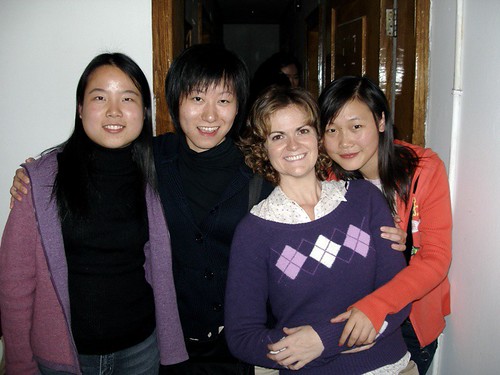With the Beijing Olympics going on right now, the world's stage is in China. Along with the attention given to the well-done opening ceremonies and the dominance of Michael Phelps, is the focus being placed on human rights violations by the Chinese government.
President Bush has addressed this and the abuses directed towards Christians in China has been
well documented.
Although it is proper for these abuses in China to get addressed to a watching world, I find that many Americans are quick to forget our country's own sordid history when it comes to human rights violations.
The harsh reality is that our present position in the world as a wealthy superpower came in large part as a result of human rights violations, namely towards the indigenous peoples of this land we now call the United States, as well as Africans that were forced into slavery. Although we should recognize the culpability of the Chinese government when it comes the treatment of its citizens, we would do well to not forget our own past.
When it comes to slavery, many nowadays are quick to stereotype those in former slave states as the main culprits during the sad chapter of American history when human beings were treated as chattel. While it is true that plantations in the South were where slaves lived and worked, not all Southerners were involved in the slave trade. And while it is true that there were some in the North that were active abolitionists, some were heavily involved in slavery.
Thanks to
Racilicious I came across a story that shares the inside scoop on a family from the North that was one of the most prominent families involved in the U.S. slave trade. Having never really questioned how her family came to such affluence, Katrina Browne eventually learned the full extent to which her family had been involved as slave traders. Her research led her to contact a number of her relatives who joined her in examining this aspect of their family's history. Browne is also the producer, director, and writer of
"Traces of the Trade: A Story from the Deep North", a PBS movie which chronicles her journey of discovery about her family, the DeWolfs. The article mentions how it benefited Browne's family:
"Even though none of the modern DeWolfs directly inherited any money made during the slave trade, there is a definite sense that their current affluence is a result of their ancestry. The DeWolfs' influence was so far-reaching that President Thomas Jefferson gave them a dispensation to continue trading slaves after it became illegal in 1808. It's hard to ignore that this kind of elite status typically sustains itself for generations; many members of Browne's group, including Browne herself, attended Ivy League schools and lead very affluent lives."
You can read the article
here.
In contrast to what Katrina Browne learned, I found out a little personal history when it comes to the slave trade and it was surprisingly positive. My hometown of
Port Huron, Michigan recently celebrated 150 years of existence. Not only is it a beautiful location on the St. Clair River, it was home to
Terry McMillan (author of popular books like "Waiting to Exhale" and "How Stella Got Her Groove Back") and inventor
Thomas Edison. It was also one of the
last major stops on The Underground Railroad before runaway slaves left the United States and entered into Canada.
As much as I am ashamed of the mistreatment of African Americans in our country, I can take some pride in knowing that the town I grew up in was a place of refuge and hope for those seeking freedom. Maybe some of that rubbed off on me...


